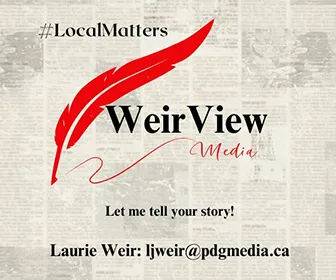LATEST NEWS
- All
- Art & Literature
- Beckwith
- Brockville
- Business
- Carleton Place
- Classifieds
- Community
- Culture
- E-paper Premium
- Editor Picks
- Education
- Evergreen Content
- Featured
- Food & Drink
- Garden Matters
- Health
- History & Mystery
- Home & Garden
- Hometown Happenings
- Hometown Headlines
- Hometown Spotlight
- Kemptville
- Lanark
- Let's Eat
- Letter from the editor
- Letter to the Editor
- Lifestyle
- Merrickville
- Mississippi Mills
- Montague
- Municipal Matters
- News
- Obituaries & Memorials
- Opinion
- Perth
- Perth Inside Out
- Podcasts
- Police Reports
- Public Notices
- Regional News
- Rideau Lakes
- Smiths Falls
- Smiths Falls Bears
- Special Features
- Sports
- Spotlight on Business
- Taste & Eplore
- Tay Valley
- The Travelling Sommelier
- The Wider Lens
- Trending
- Westport
AROUND THE REGIONLocal News
Hometown SpotlightHOMETOWN SPOTLIGHT
Beyond LocalWider Lens
Get in touch! Contact us with your events, editorials, marketing, design and advertising needs.
Contact/Editorials: editorial@pdgmedia.ca
Advertisment: sales@pdgmedia.ca







